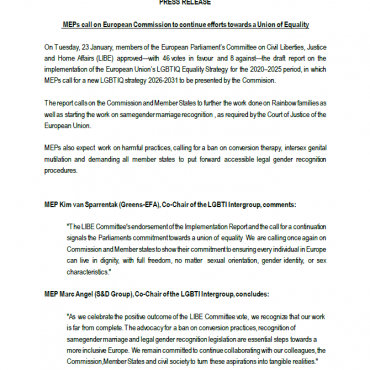Trans identities no longer considered a mental disorder in WHO’s ICD-11
In the new International Classification of Diseases released on 18 June 2018, trans identities are not considered are mental disorders anymore.
« Gender incongruen ce »was removed out of the chapter on mental disorders, and inserted into a chapter on sexual health conditions. « The rationale being that while evidence is now clear that it is not a mental disorder, and indeed classifying it in this can cause enormous stigma for people who are transgender, there remain significant health care needs that can best be met if the condition is coded under the ICD » says WHO on their ICD-11 website.
ce »was removed out of the chapter on mental disorders, and inserted into a chapter on sexual health conditions. « The rationale being that while evidence is now clear that it is not a mental disorder, and indeed classifying it in this can cause enormous stigma for people who are transgender, there remain significant health care needs that can best be met if the condition is coded under the ICD » says WHO on their ICD-11 website.
Terry Reintke MEP, co-chair of the LGBTI Intergroup at the European Parliament, said : « Only with the publication of ICD-10 in 1990 was homosexuality removed from the category of mental illnesses. Only in 2018 can we say the same for trans identities.
Today we should celebrate not just the WHO decision, but also the activists who have worked tirelessly for depathologisation of trans identities. »
Activists have indeed called for the depathologisation of trans identities for many years. In October 2017, several trans activists came to the European Parliament to talk about the impact of pathologisation on all areas of the lives of trans people, from access to healthcare, legal gender recognition and employment.
Sirpa Pietikainen MEP, vice-president of the LGBTI Intergroup at the European Parliament, added: « it is wonderful to see the WHO recognise that trans identities are not diseases. But the work for trans people’s rights does not stop here. In many countries in Europe, trans people need a diagnosis or sterilisation to access legal gender recognition.
We hope this decision will help more countries pass legal gender recognition laws based on self-determination. »
The new ICD-11 will be presented at the World Health Assembly in May 2019 for adoption by Member States, and will come into effect on 1 January 2022. With this release, Member States can already prepare for its implementation, by planning translation, dissemination and training of healthcare professionals.






